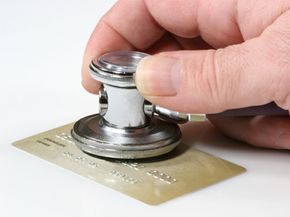Does the subject of credit make your stomach turn? Many people live in fear of trying to tackle the problem of their credit. The rationale and factors that go into calculating a credit score seem like a mysterious enigma that isn't worth trying to understand. It's true that the particular formulas for calculating a credit score aren't public knowledge. Reporting agencies use their own variations on the scoring formula, and they're allowed to keep them under wraps as trade secrets. Luckily, we don't need to know the exact formulas to understand in general what helps -- and more importantly -- what hurts your credit score.
Because this three-digit number can determine whether you get a much-needed house or car, a good credit score can be vitally important. Let's look over the general factors that go into calculating your score:
Advertisement
- Payment history: whether you have a reliable history of paying your bills on time
- Debt: how much debt you have yet to pay off right now
- Age of your accounts: how long you've had credit
- New accounts: how many new accounts you've opened recently and the number of inquires on your report
- Types of credit: the variety of accounts you have
The fourth item on that list worries many people. When they hear that "inquiries" hurt a credit score, they assume this includes their inquiries into their own report. This is a dangerous assumption because it leads people to believe that they should check their own reports sparingly. The truth is, to avoid identity theft and mistakes (which are surprisingly common), you should keep a close watch on your credit by checking your report annually -- if not more frequently. Under the Fair and Accurate Credit Transactions (FACT) Act, you're entitled to a free look at your credit report once a year. The three major credit reporting agencies organized the Web site AnnualCreditReport.com to allow consumers to exercise this right.
And if you'd like to front the fees to check your report more than once a year and to see what score an agency has given you (which usually costs about $15 or more), by all means do so. It's absolutely harmless and has no effect on your credit score.
So, what kinds of inquiries do hurt your score?
Advertisement



